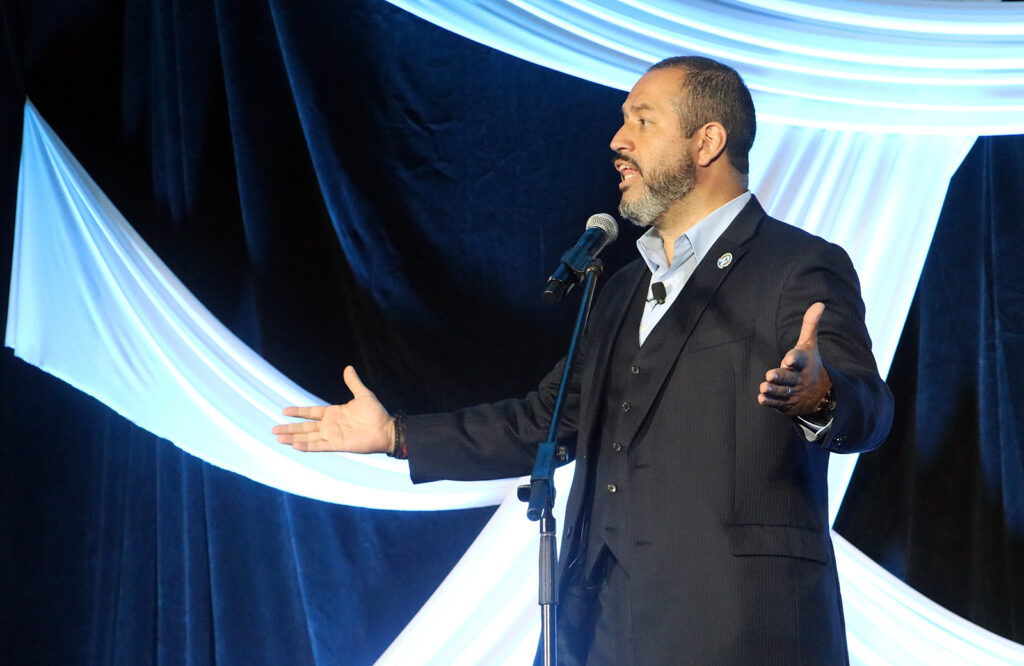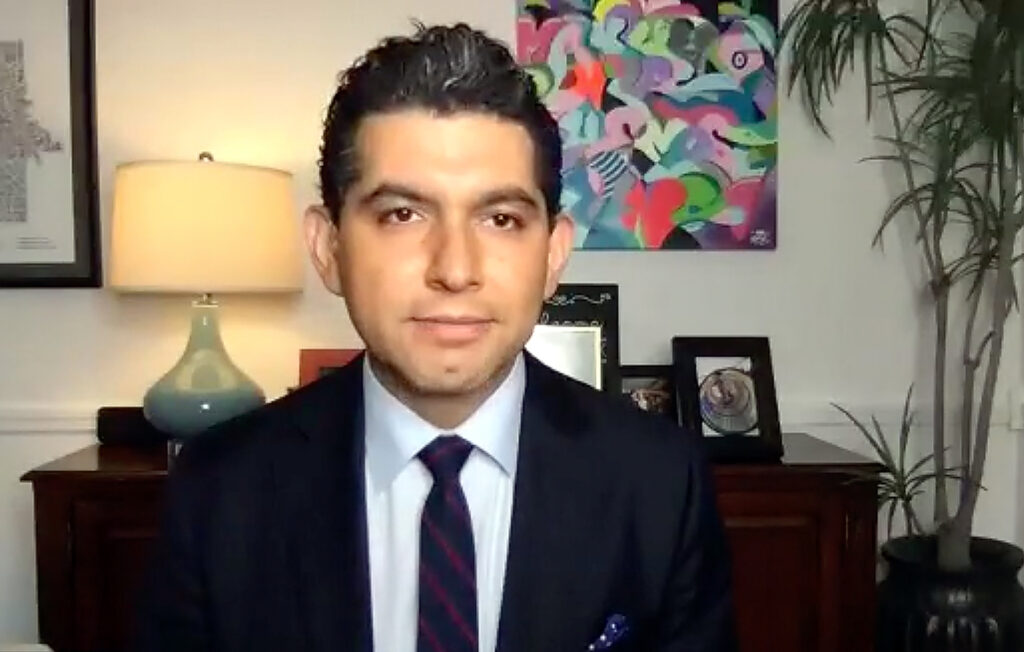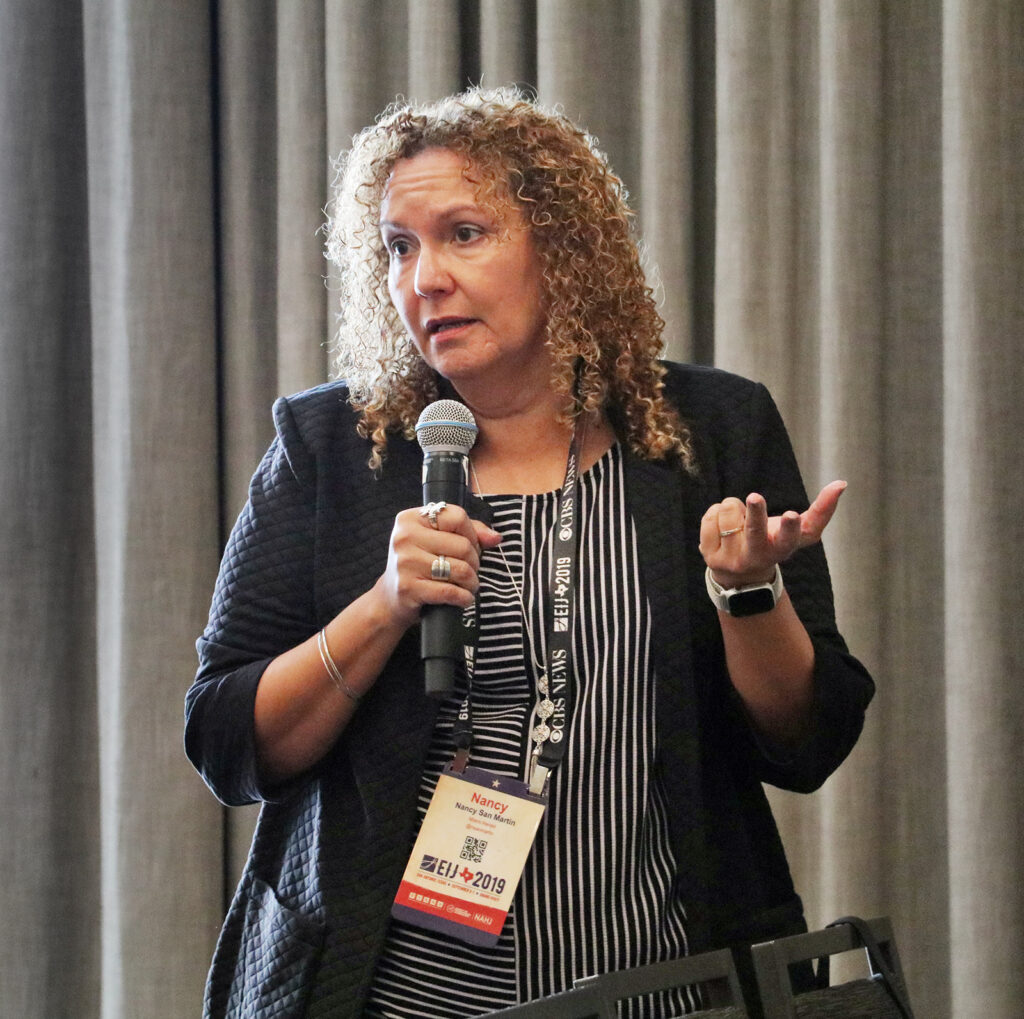After NAHJ cancelled its 2020 elections, the race is the organization’s most contested in recent memory

An unprecedented number of NAHJ members are expected to vote and run in the organization’s annual elections after a months-long controversy that began when the National Association of Hispanic Journalists cancelled its 2020 elections — and then quickly reversed course — about four months ago.
At a time when NAHJ was forced to reconfigure its annual convention due to a deadly pandemic, board members unanimously voted to cancel the 2020 elections for 10 board positions, creating a snowballing controversy that grew over months and eventually prompted the organization to reinstate a contest that has historically drawn low voter turnout and minimal participation.
But this year, participation has skyrocketed.
Angered by the board’s decision, 56 NAHJ members launched a petition a week after the election was cancelled to reverse this decision, criticizing the group’s lack of transparency and accusing the board of violating the organization’s bylaws. Some, like former board president and South Florida Sun Sentinel journalist Rafael Olmeda, even contacted lawyers.
At a virtual town hall meant to quell members’ concerns, the conversation quickly spiraled with voices rising and members squabbling over the decision. Many left the two-hour meeting feeling personally insulted.

NAHJ President Hugo Balta apologized for board members’ behavior in the town hall, and then 18 days later gave into calls to re-instate the elections. Members can now vote virtually starting September 28.
“I think the criticism of being more transparent in the decision and more inclusive in the decision is warranted,” Balta told the Latino Reporter during the 2020 convention. “If we had to do it all over again, I think we would do it differently.”
At the time, board members pointed to the uncertainty around the virtual conference and said they lacked time and resources to run an election. Several said they wanted to maintain stability in the organization by allowing current board members to stay on an extra year. Others pointed to the low engagement of past elections as evidence that NAHJ members likely would not notice or care if the elections were pushed back.
More than 90 people attended the May town hall and accused the board of undermining their rights as members, setting the stage for one of the most contested elections NAHJ has seen in years.
“Board members are saying it’s not because they want to stay in power, but that’s what it looked like,” said NAHJ member Julio-César Chávez, who is running for vice president of broadcast. “So that’s so that is why it was wrong, regardless of their intentions.”
NAHJ voter turnout and engagement is historically poor — in 2019, all 13 open seats were unopposed, and only 72 people, less than 5 percent of those eligible, voted. In fact, in the past four years, only four seats in 2018 were contested, and voter turnout never rose about 11 percent.
The elections controversy pushed Chavez to seek a nomination, he said, though he had not initially intended to run for an NAHJ position this year.
“Honestly, one of the reasons that I’m running is this choice, which was in part the choice to cancel the election and another part was the behavior of some board members during the town hall,” Chávez said.
NAHJ Vice President for Print Nancy San Martin said the board’s hands were tied because the association’s bylaws state elections must happen in conjunction with “the annual meeting of members,” which the board interpreted to mean the annual conference.
But the organization’s guiding document also states that elections must be held every two years and a member meeting can be held virtually. Actions like voting can be held without a meeting at all, the bylaws say, if NAHJ “delivers a ballot to each member entitled to vote.”
NAHJ members have expressed frustration over seemingly competing explanations for the election decision.
“We were caught off guard by it,” said Houston Chronicle journalist Monica Rhor, a former mentor and director of the Student Projects. “Why did they make this decision? And I don’t really think we ever got a good answer to that.”
Balta attributed the decision to maintaining stability in leadership — putting members through an election and changing leadership roles during a pandemic and economic crisis felt unnecessary, he said, and everyone agreed to stay on an extra year. But not all board seats were up for this year’s election.

Yvette Cabrera, NAHJ’s online vice president, and financial officer Geraldine Cols Azócar said the driving factor came from the fact that staff had to pivot to suddenly hosting a virtual convention, and resources were limited.
Both Balta and San Martin stressed that the election had never been truly canceled— the intention had been to postpone the election for a year. But the effect, many members said, was the same.
“The terminology of canceled versus postponed was an error on our part,” San Martin said. “Obviously, the elections have to be held.”
Previously, most candidates had run uncontested and while resources might have been in short supply, Olmeda, who served as board president from 2006 to 2008, refuted that the election shouldn’t have been the first thing to go.
“It does take time,” Olmeda said. “But they spent more time fighting this than they would as if they had just decided to have the election.”
The controversy spurred many members to engage in ways other than running for an open seat.
Some, like Emerson professor and longtime member Cindy E. Rodriguez and member Michelle Faust Raghavan, volunteered to be a part of a new 2020 Election Advisory Committee created this year to ensure the election is run fairly and transparently.
“People were very upset about it,” Rodriguez said. “So when there was a call for volunteers, you know, [I] wanted to be part of the process to help improve what happened.”
The deadline to nominate candidates is August 12 — several days after the annual conference concludes.
“I’m hoping that there’ll be two people on the ballot for every position,” Raghavan said. “I don’t know if we’re there yet, but I’m sure we’ll get there. And I’m really hoping that people will turn around and show up and vote and continue to be fired up.”
Changes to the bylaws will be presented to members at a meeting Saturday.
Carmen Molina Acosta is a junior at the University of Maryland, where she studies journalism and international development and conflict management. She has worked as a special projects editor for The Diamondback, Maryland’s independent student newspaper, and is a fellow with the Emma Bowen Foundation. Reach her at carmolinacosta [at] gmail [dot] com and on Twitter @carmenmolina_a.
Maria Ramos-Pacheco is a senior at the University of Texas at El Paso, where she will soon serve as editor-in-chief for the school’s magazine, Minero. She previously was editor-in-chief for The College Voice from Mercer County Community College, and she has also been a contributor for UTEP’s newspaper, The Prospector. Reach her at mgramospach [at] miners [dot] utep [dot] edu and on Twitter @Lupsramoss.